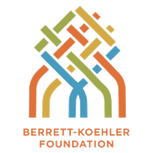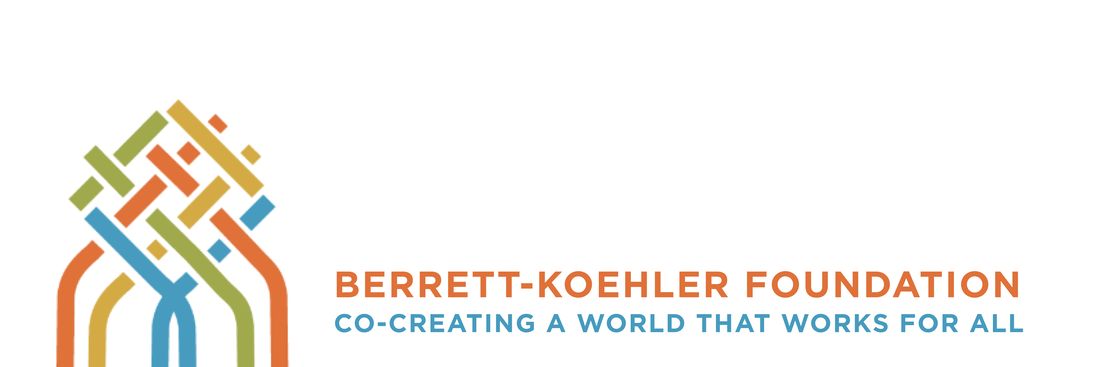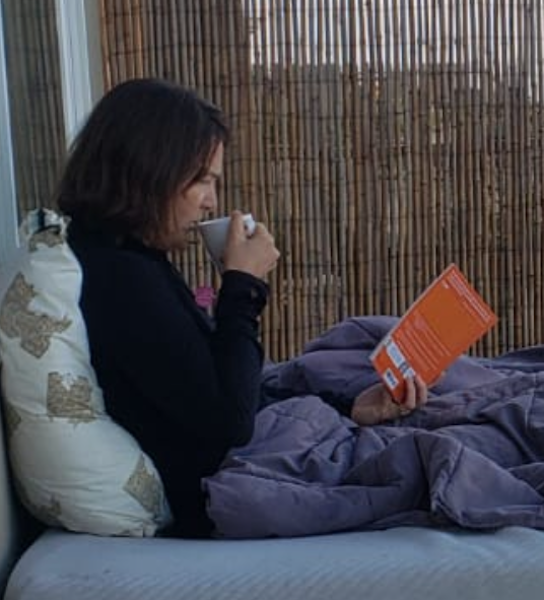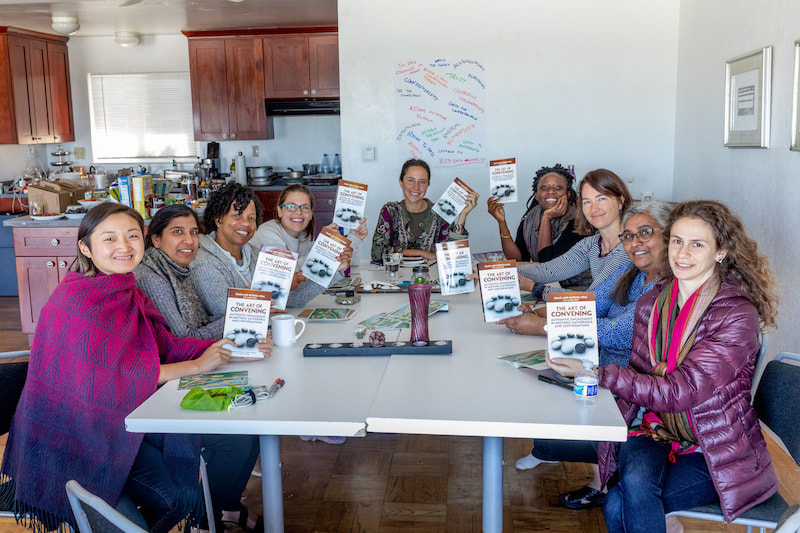|
We're willing to bet you'll be having an emotionally charged conversation in the near future that's too important to avoid. Today we are sharing gifts from two BK Foundation community members who can help us with that. Bill Eddy, author of Why We Elect Narcissists & Sociopaths - And How We Can Stop!, offers tips for highly charged conversations. Then, keep reading to check out Julie Weinstein's journey - in her own words - in BKF's Action Learning Fellowship 3.0 cohort. At the end, Julie shares ways to learn more and connect. Bill Eddy, author of Why We Elect Narcissists & Sociopaths - And How We Can Stop!, introduces the BIFF method for highly charged conversations A BIFF (brief, informative, friendly/factual, and firm) response helps us communicate in this age of rapid change, instant communication, and a pull to take sides. If improving your responses to high-conflict emails, texts, letters, and social media meltdowns is imperative for you, these two examples are a great start to learning the BIFF method. Example One Letter to the Editor: How ironic the same medical experts and the same nanny-state media who were unconcerned about tens of thousands filling the streets to protest are now the same ones who decry a one-evening gathering of conservative Trump supporters. Sorry, but their hypocritical suppression attempt will prove fruitless and serves only to further erode any shred of credibility they have remaining. (San Diego Union-Tribune, June 18, 2020) Suggested BIFF Letter Response: I read with interest your letter to editor. You may not be aware that on June 10, Dr. Fauci said the same thing to the media about the street protesters: “It’s masks plus physical separation, and when you get congregations like we saw with the demonstrations, like we have said — myself and other health officials — that’s taking a risk.” (The Hill, June 10, 2020) Notice how the BIFF response challenges the misinformation without getting sidetracked by the high conflict bait. Example Two Pro-Return to School Statement: “These kids have got to get back to school. They’re at the lowest risk possible. And if they do get COVID-19, which they will — and they will when they go to school — they’re not going to the hospitals. They’re not going to have to sit in doctor’s offices. They’re going to go home and they’re going to get over it.” (Missouri Governor on 7/17/20) Suggested BIFF Response (Tweet length): I share your concern, but look at the bigger picture. The virus has killed over 140,000 nationwide and is killing at its highest rate now in Missouri. The children can expose teachers, assistants, janitors, bus drivers, cafeteria staff, volunteers and other children and parents. NOT a BIFF Response (from a Candidate for Governor): This is stunning ignorance from @GovParsonMO on how COVID-19 affects children. He admitted that he's okay with your kids (and your families) getting the deadly disease when he sends them back to school. Does he not realize multiple American kids have died after being infected? Why is the last response NOT a BIFF response? This is not just straight information, but rather hostile, judgmental, and sarcastic. It just contributes to the he-said-she-said nature of political conflict, rather than showing above-the-fray useful information—which is the source of power of a BIFF Response. Want to learn more? check out https://www.highconflictinstitute.com/biff-responses Below is Julie at the ALF 3.0 Kick-Off event in October and her introduction to the group. Then keep reading to see how Julie and her work have evolved, as well as ways you can connect to this work.
Julie - June 2020 Back in October when I first joined the BKF fellowship I had 2 kids out of the house and a third in his last year of high school. My schedule was opening up and I was looking forward to refocusing my life on myself and my community projects. This fellowship presented that opportunity. I had ideas of what I wanted to do. Civil Conversations, the group I had started in 2017, was ready for a larger audience. I wanted to explore the idea of creating classroom curriculum to teach the ‘Art of Conversation’ or perhaps partner with the local library to help them start their own conversation groups. CollectivePower, my other project, was nearing it’s 20 year mark and I was toying with the idea of starting a micro-lending branch of the philanthropic group. It’s a bit of an understatement at this point but - 2020 didn’t go as planned. Rather than my time and space opening up, my days overflowed with new obligations to our small business, my family and my community, as we all tried to navigate the unforseen changes to our lives. So here we are at the end of the cohort and I still have a lot of work to do. In response to COVID and with the foundations help I did move my conversation group online and increased our meetings to every week. This allowed me to expand our reach out of state and to new people. ZOOM was a different and challenging platform yet the meetings provided community and consistency as we all learned to navigate our new normal. Those who weren’t comfortable switching to the online format continued to follow the conversation through our email group. As for the micro-funding idea for CollectivePower, with the country struggling with Covid-19 and the reality of racism, it seemed like the ideal time for such a venture. However, after conversations with three of our past organizations (Street Fraternity, Project Worthmore, and Greenhouse Scholars) all of whom work with underrepresented groups and disenfranchised communities, I have decided that the idea needs further refinement. I really value the partnership we have created with these organizations over the years and I want to ensure that whatever we do continues to provide direct support in the most beneficial manner. While I didn’t get to see my ideas come to fruition, I gained a lot from this experience. First, my community work has always been my side gig and not my job. It is my work in the world that I can not, not do. While it grew up right alongside my children, I never had the opportunity to examine the ‘why’s’ or ‘how’s’ of it but rather it just always was. This cohort invited me to sit at a table with amazing woman who are doing profound work in the world. I learned from hearing their voices and experiences and was challenged to find and listen to my own as well. I now move forward with a better understanding of what it is I have to offer, the area of the community that I want to work to strengthen and why that work is important to me. Secondly, I enlarged my skill set and resources. From our retreat, group meetings and one-on-one conversations I learned skills that helped me create a better space that is more accepting, productive and responsive to those enclosed within it. From the mentors and other cohorts I gained new perspectives, poems, stories, ideas and books not only for myself but also for me to share with my discussion groups. Lastly, the group provided me a space of sanity in a topsy-turvy world. Our meetings served as a gentle reminder of the good in the world and the possibilities that exist when we work together. So to Jonathan, Anna, Mansi, Yi, Cecily, Cheri, Heera, Maya, Meg, Renee, Rose, Valentina, and all other BKF community who made this cohort possible … thank you. I will continue to do the work that I can not …. not do and you all have helped me create a well tilled, nutrient rich soil and made myself a better gardener so that whatever I chose to plant in the future will have a better chance to flourish. People who are interested in joining Julie's conversation group (Civil Conversations), finding out more information, or starting their own group are welcome to reach out to Julie via email at [email protected]. And here are other conversation groups Julie suggests looking into: Socrates Cafe, Living Room Conversations, Braver Angels, and Ben Franklin Circles As for CollectivePower, you can check out their website, https://collectivepower.org. It lists all the organizations CollectivePower has sponsored over the years. You are also welcome to email Julie directly if you are interested in starting your own philanthropic fundraising event (or just to connect). Comments are closed.
|



